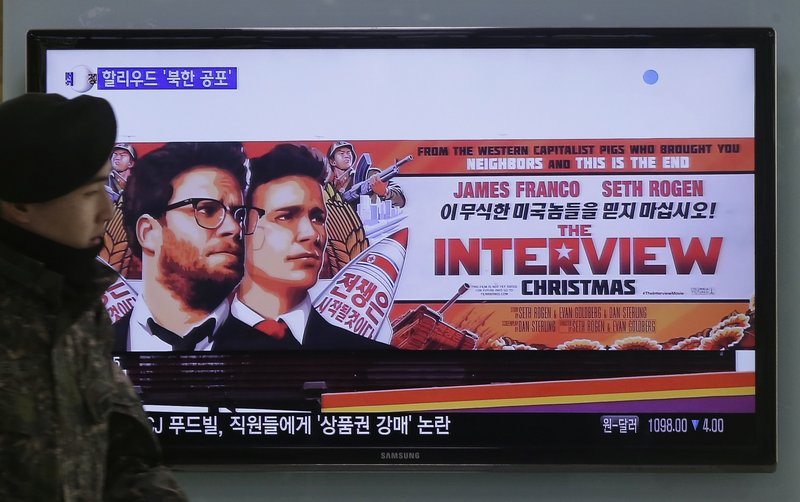MOSCOW -- Russia on Thursday offered sympathy to North Korea during the Sony hacking scandal, saying the movie that sparked the dispute was so scandalous that Pyongyang's anger was "quite understandable."
The U.S. has blamed Pyongyang for the recent cyberattack on Sony Pictures, which produced The Interview, a comedy depicting the assassination of North Korean leader Kim Jong Un. The hackers released company documents and had threatened violence at U.S. theaters if the movie were released.
Pyongyang has denied a role in the hacking but also praised it as a "righteous deed."
Washington failed to offer any proof to back its claims of Pyongyang's involvement in the hacking, Russian Foreign Ministry spokesman Alexander Lukashevich said at a briefing, adding that U.S. threats of retaliation were "counterproductive."
Russia's ties with the communist North Korea soured after the 1991 Soviet collapse but have improved under President Vladimir Putin's watch. Moscow has taken part in international efforts to help mediate the standoff over Pyongyang's nuclear and missile programs.
Commenting on the Sony incident, Lukashevich said that "the concept of the movie is so aggressive and scandalous that the reaction of the North Korean side, and not just it, is quite understandable."
He went on to say that Pyongyang had offered to conduct a joint investigation into the cyberattack, adding that the proposal could help ease tensions and reflected a "sincere desire of the North Korean side to study the issue in detail."
"We perceive the U.S. threats to take revenge and calls on other nations to condemn the Democratic People's Republic of Korea as absolutely counterproductive and dangerous, as they only would add tensions to the already difficult situation on the Korean Peninsula and could lead to further escalation of conflict," Lukashevich said.
A Section on 12/26/2014


